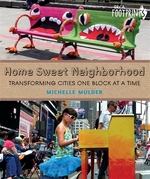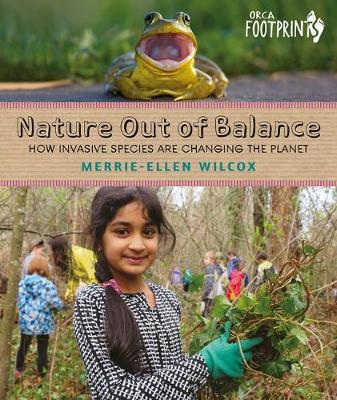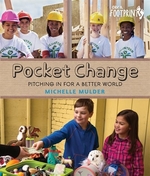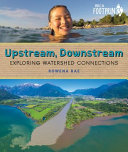Your search returned 5 results in the Theme: footprint series.

CHEMICAL WORLD SCIENCE IN OUR DAILY LIVE
By: rowena rae | Published: May 2020
Part of the nonfiction Orca Footprints series for middle readers, this book examines the good and the bad of the chemicals we come into contact with... [Read More]
Part of the nonfiction Orca Footprints series for middle readers, this book examines the good and the bad of the chemicals we come into contact with in our daily lives.
Theme: Stem
- ISBN
9781459821576 - Binding
Hardcover Canadian - Category
Science - General

HOME SWEET NEIGHBOURHOOD
By: michelle mulder | Published: March 2019
Picture a busy avenue. Now plant trees along the boulevard, paint a mural by the empty lot, and add a community garden. Set up benches along the... [Read More]
Picture a busy avenue. Now plant trees along the boulevard, paint a mural by the empty lot, and add a community garden. Set up benches along the sidewalks and make space for kids' chalk drawings, and you've set the scene for a thriving community. Placemaking-personalizing public and semi-private spaces like front yards-is a growing trend in cities and suburbs around the world, drawing people out of their homes and into conversation with one another. Kids are natural placemakers, building tree forts, drawing on sidewalks and setting up lemonade stands, but people of all ages can enjoy creative placemaking activities. From Dutch families who drag couches and tables onto sidewalks for outdoor suppers to Canadians who build little lending libraries to share books with neighbors, people can do things that make life more fun and strengthen neighborhoods. Home Sweet Neighborhood combines upbeat text, fun facts and colorful photos to intrigue and inspire readers.
- ISBN
9781459816916 - Binding
Hardcover Canadian - Category
Social Studies - Issues (economic, Political And Social)

NATURE OUT OF BALANCE
By: merrie-ellen wilcox | Published: February 2021
Part of the nonfiction Orca Footprints series for middle readers and illustrated with color photographs. Find out about the global problem of... [Read More]
Part of the nonfiction Orca Footprints series for middle readers and illustrated with color photographs. Find out about the global problem of invasive species, the good and the bad, and what you can do to support the ecosystems around you.
Theme: Environmental Issues
- ISBN
9781459823952 - Binding
Hardcover Canadian - Category
Science - General

POCKET CHANGE - PITCHING IN FOR A BETTER
By: michelle mulder | Published: September 2016
Until a few hundred years ago, people were embarrassed to buy bread in a store. Families took pride in making almost everything they owned. These... [Read More]
Until a few hundred years ago, people were embarrassed to buy bread in a store. Families took pride in making almost everything they owned. These days, many people take pride in buying as much as possible! New clothes, a speedier bicycle, the latest phone. If we've got money, someone can sell us a product that will supposedly make our lives better. But each year, humanity uses resources equivalent to nearly one and a half Earths, and we're still not meeting everyone's needs. Around the world, people are questioning consumerism, leaning toward more sustainable lifestyles and creating a whole new concept of wealth. What if you could meet all your needs while getting to know your neighbors and protecting the environment at the same time? Find out how growing a tiny cabbage can fight poverty, how a few dollars can help ten families start their own businesses and how running errands for a neighbor can help you learn to become a bike mechanic—for free!
- ISBN
9781459809666 - Binding
Hardcover Canadian - Category
Social Studies - Issues (economic, Political And Social)

UPSTREAM DOWNSTREAM - EXPLORING WATERSHED CONNECTIONS
By: rowena rae | Published: September 2021
Part of the nonfiction Orca Footprints series for middle-grade readers, this book examines our relationships with watersheds and what we need to do... [Read More]
Part of the nonfiction Orca Footprints series for middle-grade readers, this book examines our relationships with watersheds and what we need to do to protect them for future generations.
- ISBN
9781459823921 - Binding
Hardcover Canadian - Category
Science - General
